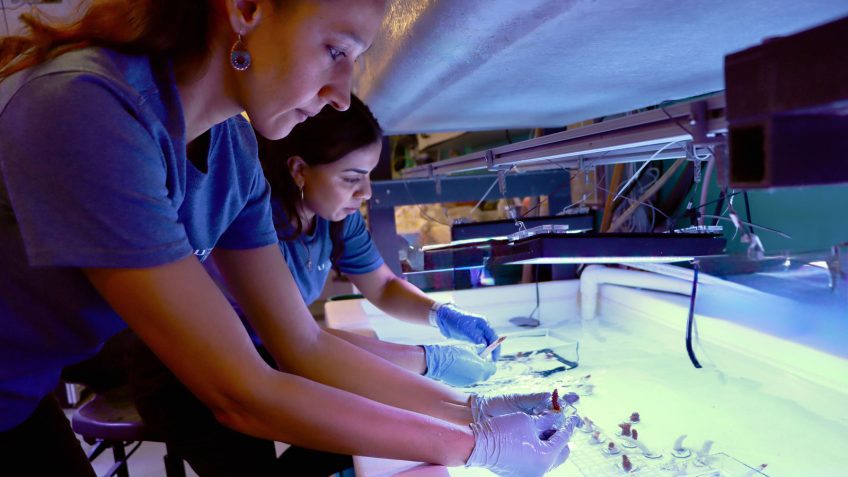Employing ‘Omics techniques to examine crucial restoration efforts across the Mission: Iconic Reefs
Scientists at AOML and the Cooperative Institute for Marine and Atmospheric Studies (CIMAS) are employing advanced ‘Omics techniques to holistically examine the effectiveness of ongoing efforts to restore coral reefs throughout the Florida Keys National Marine Sanctuary (FKNMS) under the ambitious Mission: Iconic Reefs initiative. The Florida Keys National Marine Sanctuary consists of 350 miles […]











